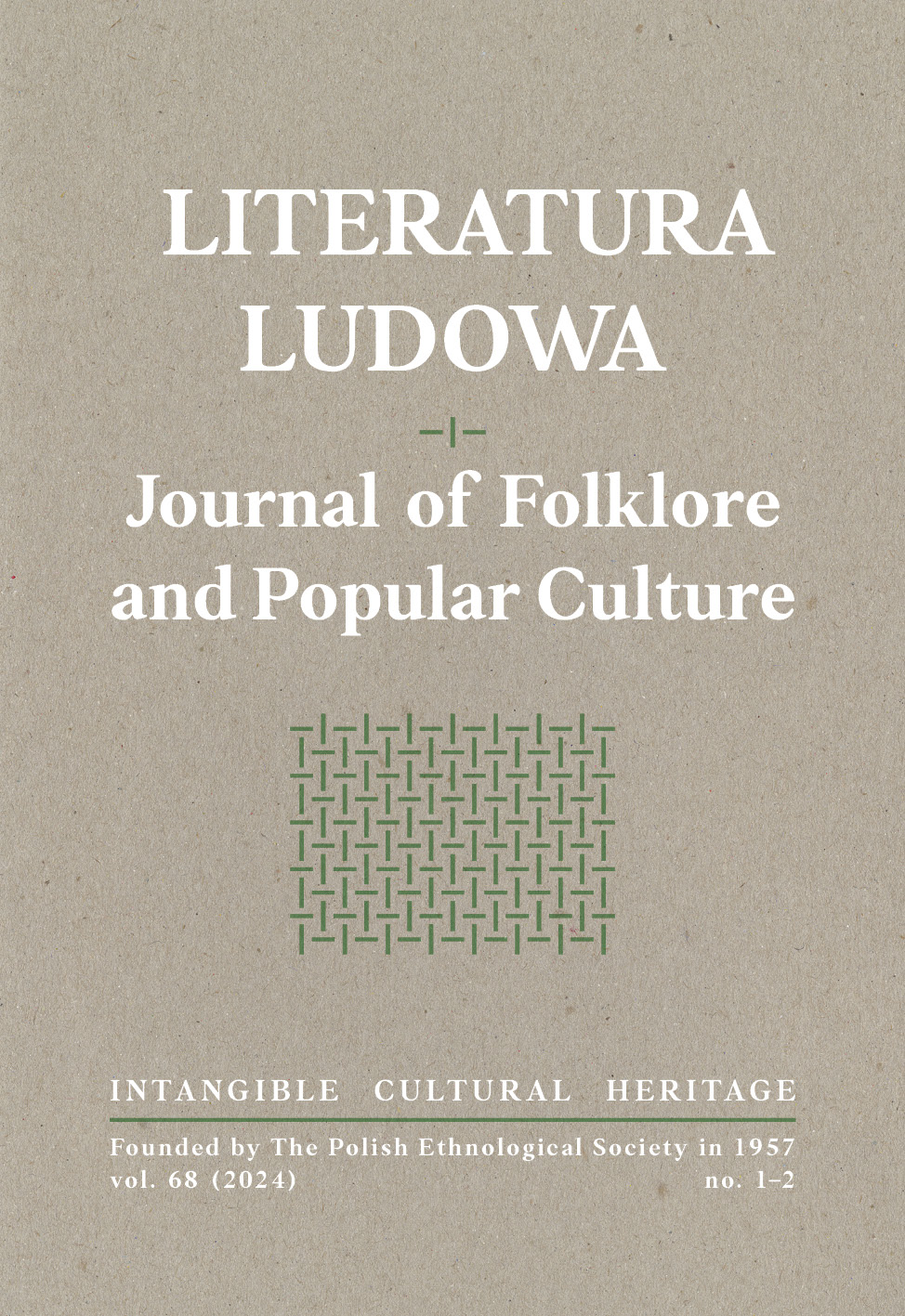On the Transmission of Elements of Intangible Cultural Heritage – the Example of the Carnival Rituals in a Rural Environment
DOI:
https://doi.org/10.12775/LL.1.2024.006Schlagworte
carnival, door-to-door procession, sabre dance, transmission, Borský MikulášAbstract
The carnival (fašiangy) is a long-established and still occurring cultural phenomenon in Slovak society. It resonates not only in our society as a whole, but also at local level as a significant period of the calendar ritual cycle. The contribution presents the problem of the transmission of selected carnival phenomena in the municipality of Borský Mikuláš (the Senica District) in the south-west of Slovakia. Dealing with current ways of transferring the traditional model of the carnival door-to-door sabre procession and maintaining its continuity, as well as current ways of studying carnival rituals and necessary skills, the text draws attention to new ways of using and dealing with these phenomena of intangible cultural heritage in the current rural society.
Literaturhinweise
Beňušková, Z., et al. (2018). Liptovská Teplička since the second half of the 20th century. UKF Nitra Press.
Buzrla, M. (2016). The current course of carnival based on the example of the municipalities of Borský Mikuláš and Borský Peter [unpublished bachelor thesis]. UKF Nitra.
Dúžek, S. (1989). Carnival Folk Dances in Slovakia. In O. Elschek (ed.), Musicologica Slovaca. Folk music and dance traditions (pp. 158–203). Bratislava Veda Press.
Dúžek, S. (1994). Changes in carnival customs in Záhorie. Záhorie, 3(1), 3–7.
Hall, E. T. (1989). Beyond Culture. Random House.
Horváthová, E. (1982). To the theoretical aspects of the issue of tradition. Slovenský národopis, 30(1), 45–57.
Kačírek, Ľ. (2016). Cultural heritage of Slovakia. College scripts. Muzeológia a kultúrne dedičstvo o. z.
Luther, D. (1978). Elements of the constitution of tradition in the present (On the example of the analysis of Carnival customs). Slovenský národopis, 26(2), 300–313.
O’Reilly, K. (2012). Ethnographic methods. Routledge.
Questionnaires on folk customs and traditions 1930–1975. Ethnographic Museum of the Slovak National Museum in Martin, inventory number 244.
Ratica, D. (1993). Values in the context of changes in everyday culture. Slovenský národopis, 41(4), 387–396.
Ratica, D. (1995). Transmisia. In J. Botík, P. Slavkovský (eds.), Encyclopedia of Slovak folk culture (vol. 2, p. 264). Bratislava Veda Press.
Rychlíková, M. (1988). Changes in the carnival door-to-door procession in the first half of the 1980s in the villages of Borský Mikuláš and Borský Peter. Zborník SNM-Etnografia), 29, 193–199.
Downloads
Veröffentlicht
Zitationsvorschlag
Ausgabe
Rubrik
Lizenz
Copyright (c) 2024 Margita Jágerová

Dieses Werk steht unter der Lizenz Creative Commons Namensnennung - Keine Bearbeitungen 4.0 International. 1. The authors give the publisher (Polish Ethnological Society) non-exclusive license to use the work in the following fields:
a) recording of a Work / subject of a related copyright;
b) reproduction (multiplication) Work / subject of a related copyright in print and digital technique (ebook, audiobook);
c) marketing of units of reproduced Work / subject of a related copyright;
d) introduction of Work / object of related copyright to computer memory;
e) dissemination of the work in an electronic version in the formula of open access under the Creative Commons license (CC BY - ND 3.0).
2. The authors give the publisher the license free of charge.
3. The use of the work by publisher in the above mentioned aspects is not limited in time, quantitatively nor territorially.
Stats
Number of views and downloads: 380
Number of citations: 0



